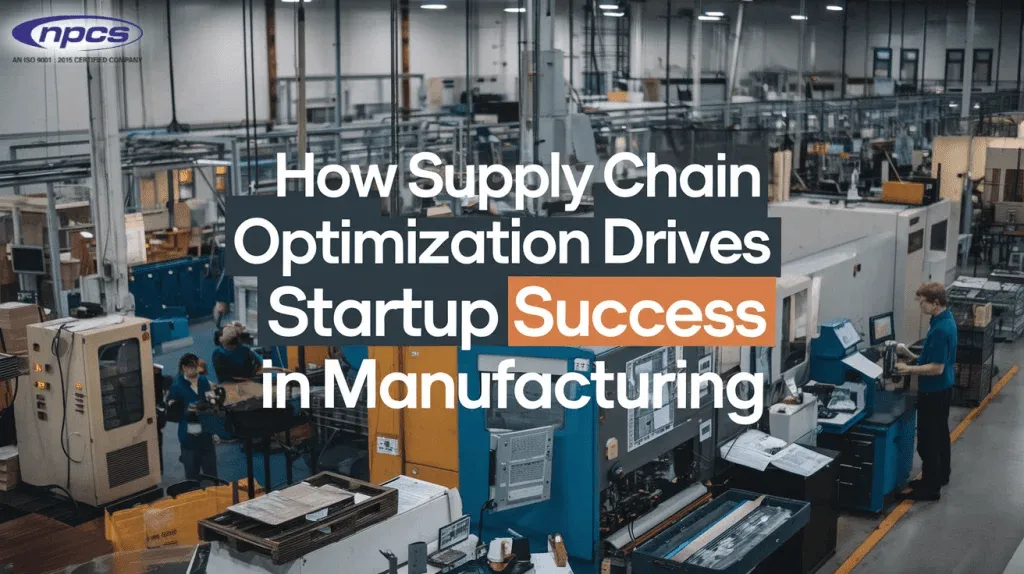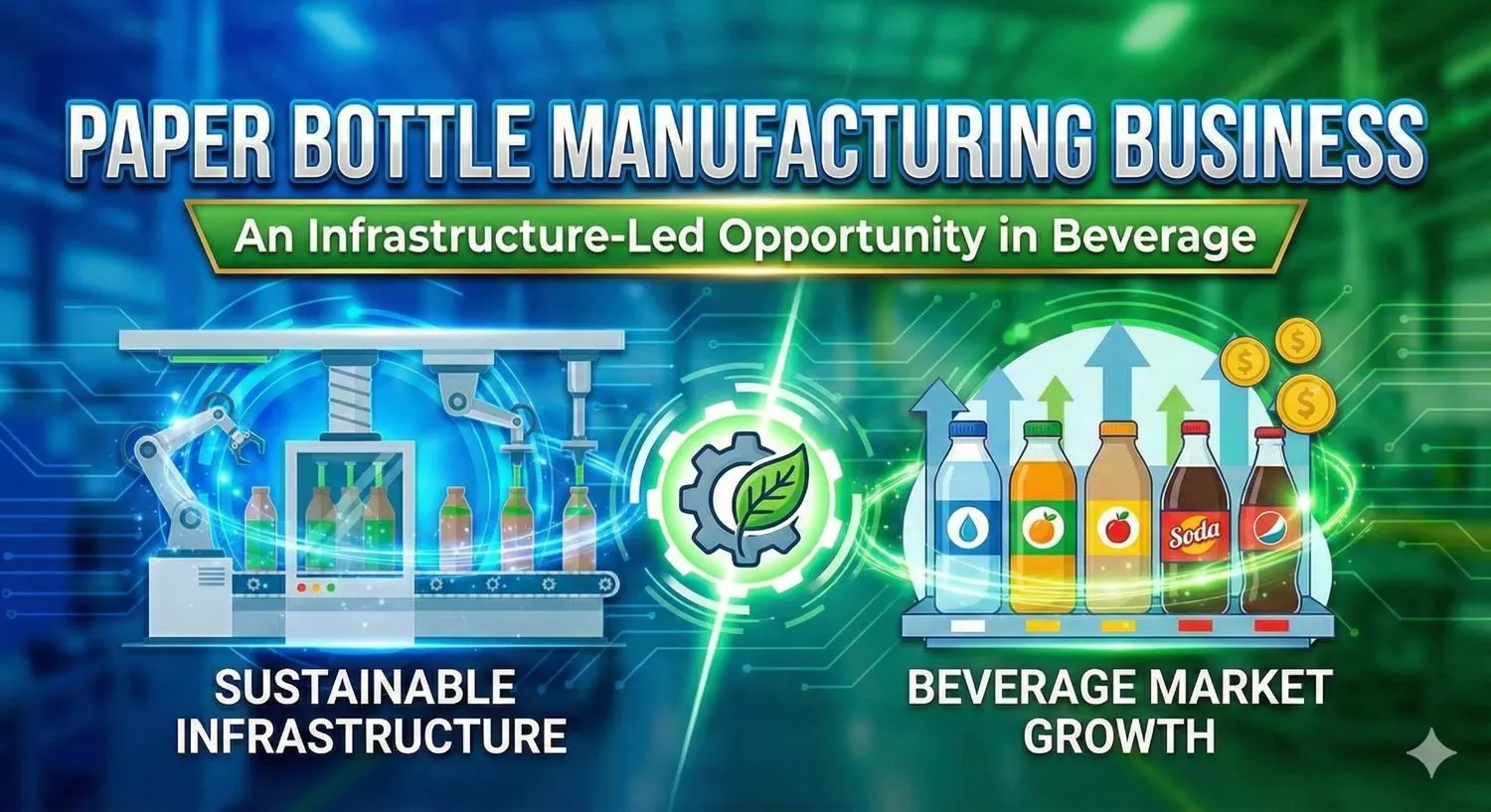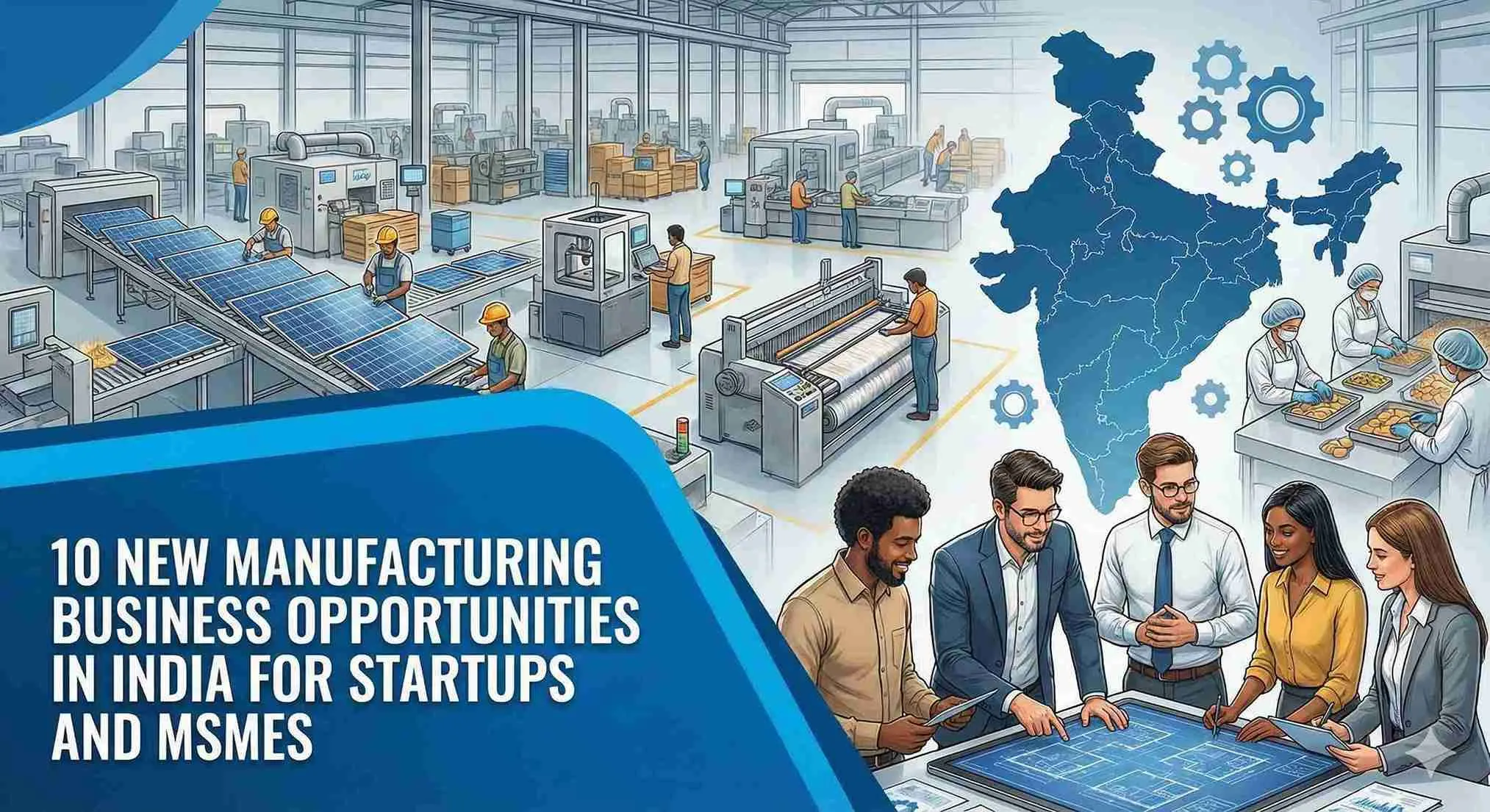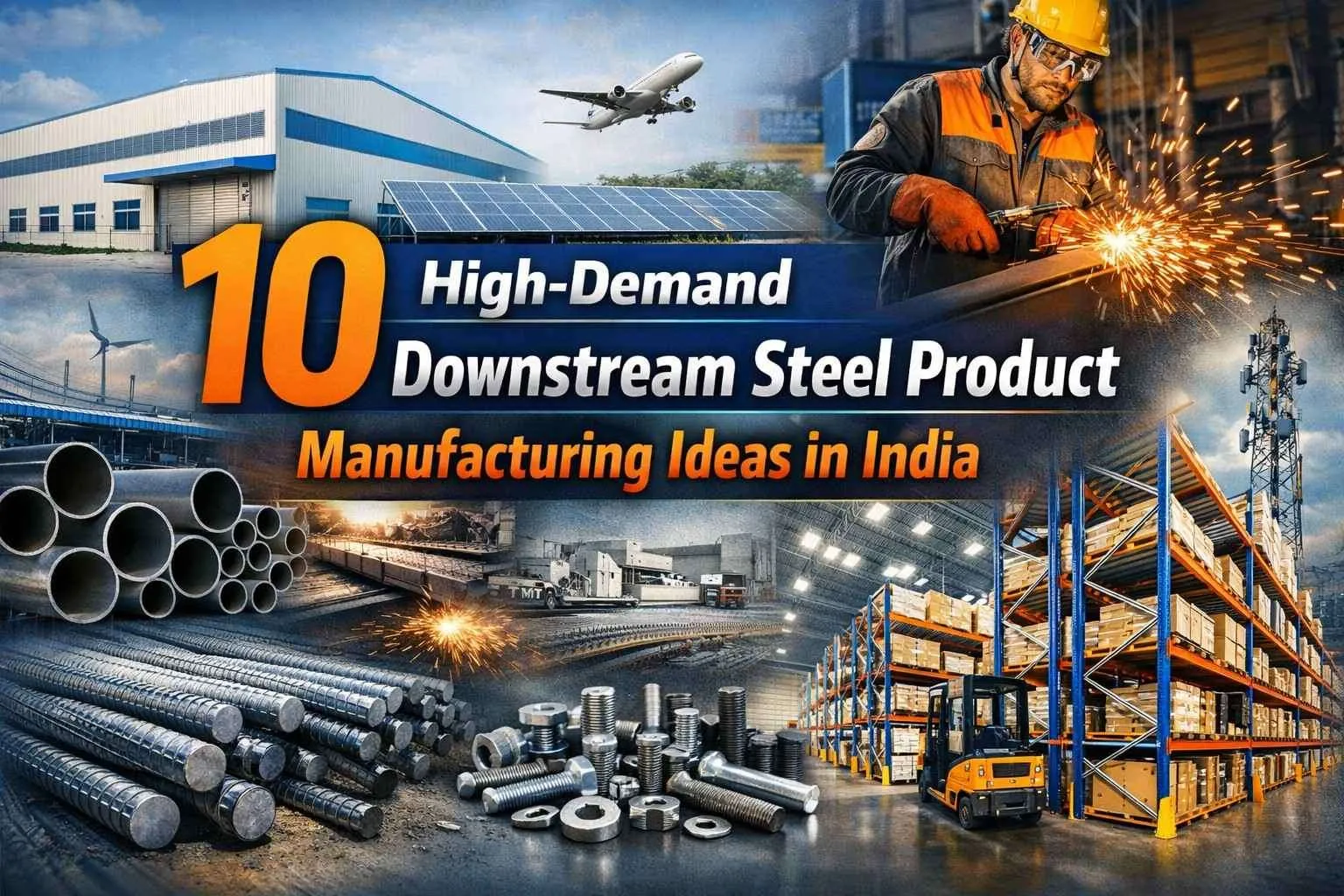In the current evolving ecosystem of manufacturing, startups are changing and introducing new metrics that redefine what supply chains should be to gain competitive advantages. This excellent strategy integrates with modern technologies and drives extraordinary processes in an agile way, helping manufacturing startups optimize operations, reduce costs, and enhance customer satisfaction. The following article tells how principles derived from smart manufacturing and the optimized supply chains have been preparing good grounds for that innovative variability of startup ideas.
Contents
- 0.1 The Role of Supply Chain Optimization in Boosting Operational Efficiency
- 0.2 How Smart Manufacturing Aligns with Supply Chain Innovation
- 0.3 Emerging Startup Ideas Fueled by Supply Chain Optimization
- 0.4 Digital Transformation as a Catalyst for Supply Chain Success
- 0.5 Addressing Supply Chain Disruptions with Agile Strategies
- 0.6 Sustainability as a Competitive Advantage in Supply Chains
- 1 Frequently Asked Question
The Role of Supply Chain Optimization in Boosting Operational Efficiency
For manufacturing startups, operational efficiency is the prime differentiator between success and failure. Supply chain optimization helps in reducing waste and costs and ensures the seamless transfer of raw materials to finished goods. A startup can achieve:
- Enhanced agility: Supply chains that are flexible will allow the startups to respond sufficiently quickly to any market change or disruption and will prove essential in a day when business is as uncertain as it is today.
- Cost savings: More streamlined logistics and inventory systems mean that overhead costs are reduced, freeing up resources to invest in innovation and growth.
- Enhanced customer satisfaction: Startups can build brand loyalty by ensuring on-time delivery of high-quality products.
Predictive analytics and IoT-enabled monitoring solutions have revolutionized the market; these give way to data-driven decisions. Like predictive analytics, which performs demand forecasting so that the startup can proactively modify production schedules and inventory levels, such technological reforms help to eliminate stockouts and overproduction.
How Smart Manufacturing Aligns with Supply Chain Innovation
Smart manufacturing is an important area of Industry 4.0 that is currently opening up new opportunities for startups to optimize their supply chains. Innovations such as artificial intelligence, robotics, and automation are being employed to improve the capability of production systems that are dynamic in nature.
- Automating Workflows: Automation then lends the capability for increased speed of productivity while lowering human errors. The resultant improvements therefore have direct implications to increase and ensure the efficiency and reliability of the entire chain.
- Sustainability: Startups that adopt ‘green’ practices only have to fulfill the existing requirements when fresh regulations emerge and attract green consumers, one of the fastest-growing market segments.
- Collaboration: Better integration among suppliers, manufacturers, and distributors brings superior communication and fewer blockages in operations.
New technologies have the potential for lowering overhead costs while improving product quality and market responsiveness, which are essential to becoming competitive even for startups.
Emerging Startup Ideas Fueled by Supply Chain Optimization
Innovation in novel startup ideas can be found at the intersection of supply chain optimization and smart manufacturing. Some good examples may include:
- Sustainable Supply Chains: Startups create eco-friendly logistics and sustainable raw materials to develop greener solutions and market them based on demand.
- On-demand Manufacturing Platforms: Customers can place orders for customized items that will be quickly delivered, thus changing the traditional method of manufacturing.
- Predictive Maintenance Services: Avenues that startups are focusing on in offering IoT and AI-based solutions that can predict or foresee equipment failure, thereby ultimately reducing downtime and increasing high efficiency.
Such ideas show that startups are not merely part of the manufacturing space; they are transforming it with much innovation.
Project Reports: Best Business Opportunities in Turkey
Digital Transformation as a Catalyst for Supply Chain Success
The new and ongoing digital transformation is changing the way startups manage their supply chains, from the blockchain to cloud computing. Digital tools provide visibility, traceability, and efficiency at every level of the supply chain. In short, new-age digital tools optimize supply chains so that the startup can grow fast without building a whole lot of additional cost overhead.
- Real-time tracking: IoT-enabled sensors that allow startups to track shipments create visibility alongside which risks to theft or damage can be reduced.
- Blockchain: This technology provides a record of transactions that can be tampered with, which, for example, is crucial to industries like pharmaceuticals, food manufacturing, and the like.
- Cloud-based collaboration: Any supplier, manufacturer, and distributor could work with other facilities through platforms that allow real-time data sharing; they can work more efficiently and reduce gaps in communications.
Such innovations speed up the speed at which startups adapt to changing market trends, build customer trust, and normalize standards in the industry. This equipment is particularly critical in smart manufacturing, where flexibility and precision drive performance.
Read our Books
- Entrepreneur’s Start-Up Handbook: Manufacturing of Profitable Household (FMCG) Products with Process & Formulations (2nd Revised Edition)
- Handbook on Production, Recycling of Lithium-Ion and Lead-Acid Batteries (with Manufacturing Process, Machinery Equipment Details & Plant Layout)
Addressing Supply Chain Disruptions with Agile Strategies
Unexpected interruptions, such as geopolitical tensions or natural catastrophes, can cripple the unprepared supply chain. However, startups that adopt agile strategy can protect themselves from these problems. Supply chain optimization is about laying structures that can be resilient to ups and downs without losing efficiency.
- Diversifying suppliers: More suppliers mean less dependency and more continuity during any regional disruption.
- Nearshoring production: Having production closer to key markets minimizes the issues involved with long-distance logistics and customs delays.
- Demand forecasting: An advanced analytics tool to predict market demand helps the startup to adjust inventory levels and production schedules in advance.
Also Read
Manufacturing Business of Disposable Products
Building agility into operations can help startups achieve operational consistency while they grasp newly found opportunities and strengthen their positions in the competitive manufacturing landscape.
Sustainability as a Competitive Advantage in Supply Chains
These days, sustainability is no more a choice; it is a competitive necessity. Whether consumers or businesses, everyone talks about going green. Startups have good chances of being an ambush as far as sustainability in business goes. Supply chain optimization is one of the major things businesses engrave within an organization on how to be sustainable.
- Eco-friendly sourcing: Start-up companies can source from suppliers who are dedicated to the sustainability of materials and practices.
- Minimization of waste: Lean manufacturing principles are all about waste; by following them, waste will be reduced; this has the dual effect of reducing waste and cost savings.
- Carbon footprint calculator: Various tools monitor and then report emissions in the supply chain, and such tools can assist startups in meeting legislation considered suitable and developing credibility with customers.
Such practices would be in time with broad, embracing goals of smart manufacturing, which focuses on resource efficiency and innovation. Those that get countries to go green start gaining important advantages above others.
Conclusion
It is not just a backend function but rather acts as an enabler for growth and resilience in strategic terms.
For manufacturing startups, using supply chain optimization as a core strategy will open the doors to innovation, efficiency, and adaptation to changing market needs.
Whether smart manufacturing technologies or unique sustainable solutions apply, startups prioritizing their supply chains will undoubtedly gain a better competitive edge. Visit NIIR.org for comprehensive information and customized resources. Their specialization in feasibility studies and project planning can help make that entrepreneurial dream into a reality.
Contact Us
Frequently Asked Question
How does supply chain optimization help smart manufacturing startups succeed?
Optimising the supply chain improves efficiency, cuts costs, boosts visibility, enables faster delivery, and helps startups better match production with demand — all of which support long-term competitive success.
What role do technologies like AI and IoT play in supply chain optimisation?
AI and IoT enable real-time tracking, predictive forecasting, automated decision-making, remote monitoring of assets, and smarter inventory management, which reduce waste and improve responsiveness.
Why is data analysis important for supply chain optimisation?
Data analysis helps identify bottlenecks, predict demand, assess supplier performance, and guide strategic decisions, leading to improved throughput, lower risk, and better customer satisfaction.
How can smart manufacturing improve inventory and production planning?
Smart manufacturing uses sensors, automation, and real-time analytics to synchronise production with actual demand, minimise excess inventory, and ensure efficient use of resources.















